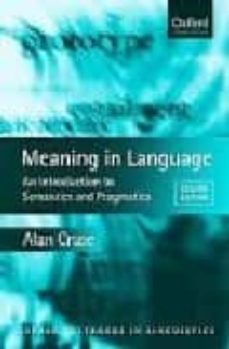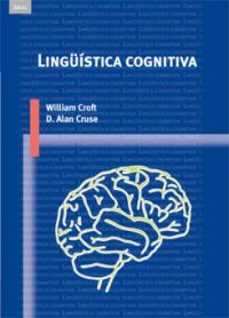Imprescindibles
Ficción
No Ficción
Ciencias y tecnología Biología Ciencias Ciencias naturales Divulgación científica Informática Ingeniería Matemáticas Medicina Salud y dietas Filología Biblioteconomía Estudios filológicos Estudios lingüísticos Estudios literarios Historia y crítica de la Literatura
Humanidades Autoayuda y espiritualidad Ciencias humanas Derecho Economía y Empresa Psicología y Pedagogía Filosofía Sociología Historia Arqueología Biografías Historia de España Historia Universal Historia por países
Infantil
Juvenil
#Jóvenes lectores Narrativa juvenil Clásicos adaptados Libros Wattpad Libros Booktok Libros de influencers Libros de Youtubers Libros Spicy Juveniles Libros LGTBIQ+ Temas sociales Libros ciencia ficción Libros de acción y aventura Cómic y manga juvenil Cómic juvenil Manga Shonen Manga Shojo Autores destacados Jennifer L. Armentrout Eloy Moreno Nerea Llanes Hannah Nicole Maehrer
Libros de fantasía Cozy Fantasy Dark academia Hadas y Fae Romantasy Royal Fantasy Urban Fantasy Vampiros y hombres lobo Otros Misterio y terror Cozy mistery Policiaca Spooky Terror Thriller y suspense Otros
Libros románticos y de amor Dark Romance Clean Romance Cowboy Romance Mafia y amor Romance dramatico Romcom libros Sport Romance Otros Clichés Enemies to Lovers Friends to Lovers Hermanastros Slow Burn Fake Dating Triángulo amoroso
Cómic y manga
Novela gráfica Novela gráfica americana Novela gráfica europea Novela gráfica de otros países Personajes, series y sagas Series y sagas Star Wars Superhéroes Cómics DC Cómics Marvel Cómics otros superhéroes Cómics Valiant
eBooks
Literatura Contemporánea Narrativa fantástica Novela de ciencia ficción Novela de terror Novela histórica Novela negra Novela romántica y erótica Juvenil Más de 13 años Más de 15 años Infantil eBooks infantiles
Humanidades Autoayuda y espiritualidad Ciencias humanas Economía y Empresa Psicología y Pedagogía Filosofía Historia Historia de España Historia Universal Arte Cine Música Historia del arte
Ciencia y tecnología Ciencias naturales Divulgación científica Medicina Salud y dietas Filología Estudios lingüísticos Estudios literarios Historia y crítica de la Literatura Estilo de vida Cocina Guías de viaje Ocio y deportes
ALAN CRUSE
Recibe novedades de ALAN CRUSE directamente en tu email
Filtros
Del 1 al 4 de 4
OXFORD UNIVERSITY PRESS 9780199263066
Otros
OXFORD UNIVERSITY PRESS 9780198700104
This book provides a comprehensive introduction to the ways in which meaning is conveyed in language. It covers topics normally considered to fall under pragmatics, as well as semantic matters. The author seeks, above all, to display and to explain the richness and subtlety of meaning, and to that end provides abundant exemplification throughout the text. Numerous exercises (and suggested answers) are provided at every stage. The book is not bound to any particular theory, but provides explanations of theoretical approaches and perspectives as the context requires. The author stresses the need for conceptual clarity in all analyses of meaning. Meaning in Language is readable and vigorous, written with style and wit. It will be widely welcomed by students in linguistics, philosophy, and literature.
Ver más
Tapa blanda
Ediciones Akal 9788446022985
La lingüística cognitiva afirma que el lenguaje está regido por principios cognitivos generales, más que por un módulo específico para el mismo. Este manual introductorio analiza el campo de la lingüística cognitiva como un área de estudio definida, presentando sus bases teóricas y los argumentos que la sostienen. Organizado y escrito de un modo claro y accesible, el texto aporta una útil introducción a la relación entre el lenguaje y los procesos cognitivos cerebrales; abarca los temas principales presentes en los cursos y seminarios de lingüística y ofrece una síntesis de las investigaciones y los estudios realizados en un campo que ha crecido muy rápidamente en los últimos años. Los autores comienzan explicando las estructuras conceptuales y los procesos cognitivos que rigen la representación lingüística y la conducta, y continúan explorando los enfoques cognitivos de la semántica léxica, así como de la representación y el análisis sintáctico, con especial atención a las estructuras de la gramática cognitiva y la gramática de la construcción, estrechamente relacionadas. El presente volumen constituye un manual imprescindible para los estudiantes tanto de lingüística como de ciencia cognitiva.
Ver más
Tapa blanda
CAMBRIDGE UNIVERSITY PRESS 9780521667708
Cognitive Linguistics argues that language is governed by general cognitive principles, rather than by a special-purpose language module. This introductory textbook surveys the field of cognitive linguistics as a distinct area of study, presenting its theoretical foundations and the arguments supporting it. Clearly organised and accessibly written, it provides a useful introduction to the relationship between language and cognitive processing in the human brain. It covers the main topics likely to be encountered in a course or seminar, and provides a synthesis of study and research in this fast-growing field of linguistics. The authors begin by explaining the conceptual structures and cognitive processes governing linguistic representation and behaviour, and go on to explore cognitive approaches to lexical semantics, as well as syntactic representation and analysis, focusing on the closely related frameworks of cognitive grammar and construction grammar. This much-needed introduction will be welcomed by students in linguistics and cognitive science.
Ver más
Tapa blanda
Del 1 al 4 de 4


























